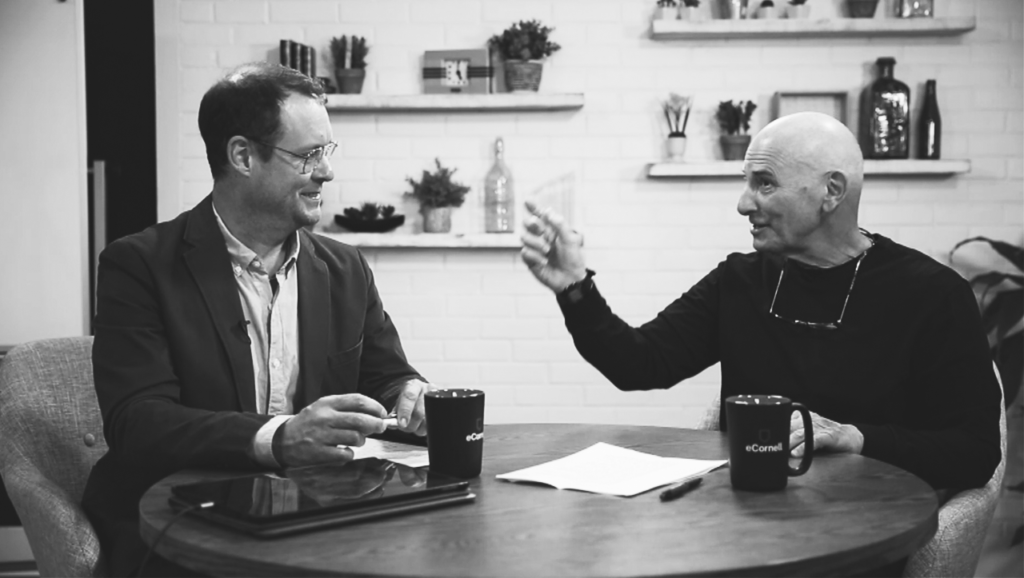5 Tips for Improving Your Public Speaking Presence
Do you have the presence of a leader? Are you comfortable public speaking? A vital skill in business and life is the ability to genuinely connect with others, yet many are intimidated at the thought of standing and speaking before friends or peers.

David Feldshuh, Theater Professor and Artistic Director of the Schwartz Center for the Performing Arts at Cornell University, can absolutely relate to this.
“I was extremely shy,” admitted Feldshuh, “but I decided to get over my fear of public speaking by going to drama school and becoming a professional actor.” Learning from these techniques, Feldshuh invented his own method of training people to have a presence, communicate, and connect, and ultimately become more effective when speaking on any subject, in any place, and to any audience.
Feldshuh discussed a few tips for refining public speaking skills in a recent webcast with eCornell, Executive Presence: the Lifelong Process of Public Speaking.
1. Take Up Space
Public speaking requires becoming comfortable with taking up space. Feldshuh suggests practicing simple exercises, including posture, centering, balance and stillness. “Your head is high, your shoulders are wide, you’re balanced. You reach out, you ‘catch rain’. Your shoulders come back. Relax… Think about yourself as a pendulum; side to side, until you come to a point of stillness.”
2. Freedom of Expression
Executive presence should be authentic, Feldshuh advises. You must have freedom of expression and access to a range of vocal and physical communication skills. Recognize and become familiar with your own gestures and sounds; you want to use your voice and body without fear or self-consciousness. Relax your face, breathe, and smile.
3. Magnetism
Feldshuh defines magnetism as “the ability to bring variety to how you present yourself so people want to hear more.” It is important to connect with your audience, and understand how each person is different. Change your delivery as needed; take a moment to ask yourself what you want from that person, and make that connection.
4. Performance
Not everyone can be a magnificent speaker, but Feldshuh says the measure of success is being able to see and believe in yourself as competent. The easiest way to do this is to observe yourself – ask a friend to take videos of you presenting, or ordering something from a menu. The more you acclimate to seeing yourself, the more you become comfortable with your own voice and gestures.
5. Practice
Becoming an effective speaker doesn’t happen overnight. Feldshuh encourages individuals to take the time to become self-aware of their habits, and learn techniques to change those habits and develop new ones. “Record it, look at it, change it,” says Feldshuh. “You’re coaching yourself, and that’s the measure of success.”
This method is the basis of Cornell University’s online certificate program, Executive Presence. Over the course of fifteen weeks, students learn to refine their public speaking skills through the act of analyzing their own performance, performing exercises and practicing transformative techniques.